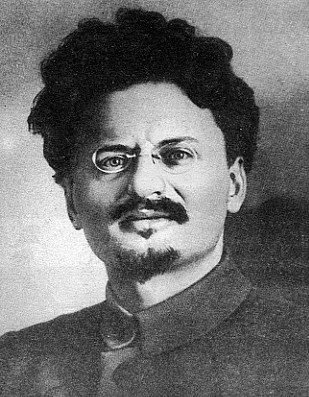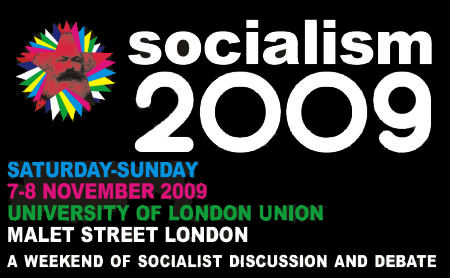 Following on from my previous short piece on the Paris Commune.
Following on from my previous short piece on the Paris Commune.Trotsky wrote several times about the Paris Commune and the lessons that it gives Marxists in their struggles. As Donny Gluckstein correctly points out in The Paris Commune: A Revolution in Democracy, “Trotsky identified parallels between Paris in 1871 and Russia in 1917,” (pg200), and goes on to elaborate some of these with a series of quotations from Trotsky’s 1921 article, “Lessons of the Paris Commune” (available on the Marxist Internet Archive – despite footnotes citing them as secondary quoatations from other sources the entirety of the text quoted can be found in this document. There is also a quotation from this document in a footnote earlier in the book).
The first point which is elaborated is that of the similarities between the Central Committee of the National Guard (hereafter Central Committee) and the Councils of Workers’ and Soldiers’ Deputies (or Soviets), as Gluckstein points out, “Both were organs of working class power with systems of instant recall and direct democracy. The French National Guard operated its collective control through the battalions which assembled on a daily basis and so could keep representatives under constant scrutiny. In Russia soldiers’ regiments and factories played the same role.” (pg.200). He especially points to Trotsky’s criticism of the National Guard for abdicating power after the 18th March events (when the Thiers government failed in its attempted to remove from Paris cannons that had been paid for by public subscriptions and thereby compromise its defence), noting that Trotsky saw their this decision as a weakness in not gaining a complete victory in the aftermath on March 18th as due to the inexperience of the members of the Central Committee, but also as an attempt so, “…that Thiers would halt respectfully before revolutionary Paris the minute the latter covered itself with the ‘legal’ Commune”. (Trotsky, Lessons of the Paris Commune)
Following on from this Gluckstein goes on to demonstrate the missing element in the situation, a revolutionary party. He points out that such an organisation is able to bring the experience of past struggles to bear in the current situation, as well as having a nucleus of experienced organisers. He further states that, “...[The Soviets] too wished to abdicate power early on…Through patient argument the Bolsheviks won over the majority in the Soviets…” (pg.202), which in general is correct, although it should be noted that until Lenin’s return in April, the Bolshevik party under the direction of Stalin had argued in the same manner as the Soviets and the Central Committee. He also highlights as an example of this the lack of agitation amongst troops fighting in the Franco-Prussian war, who were demoralised by the ineptitude of the French army command and looking for an alternative, obviously such an approach would have made it much more difficult for the reaction headed by Thiers to militarily crush Paris.
The final point which Gluckstein touches on from Trotsky’s document is the to do with the isolation that Paris faced, both the Central Committee and Commune were organised in Paris alone, which despite being the largest town in France, still left it isolated. In his book Gluckstein comments very briefly on the short-lived communes created in other areas. As the quote from Trotsky points out, “It was necessary to enter into contact with sympathisers, to strengthen the hesitators and shatter the opposition of the adversary. Instead of this policy of offensive and aggression which was the only thing that could save the situation, the leaders of Paris attempted to seclude themselves in their communal autonomy: they will not attack the others if the others do not attack them; each town has its sacred right of self-government.” However, a further quote from Trotsky (which Gluckstein does not use) links this in with the point Trotsky makes about the indecision of the Central Committee, “Passivity and indecision were supported in this case by the sacred principle of federation and autonomy… it was nothing but an attempt to replace the proletarian revolution, which was developing, by a petit bourgeois reform: communal autonomy.”
The main problem I have with Gluckstein’s commentary on Trotsky is that it he barely uses any of it. Having printed off ‘Lessons of the Paris Commune’, it fills 9 A4 pages, of which Glucksteins’ quotations come entirely from the 3rd and 4th pages. There is a wealth of other interesting observations that Gluckstein effectively ignores as we have seen in parts already above. This is not to say there is nothing in Gluckstein’s book on some of the points below, but it surely would have been strengthened by considering this material too.
For example, at the beginning of the article, Trotsky, points out that “The Commune came too late. It had all the possibilities of taking the power on September 4th… But power fell into the hands of the democratic praters, the deputies of Paris.” To Gluckstein’s credit he notes that Marx had originally opposed workers taking power in the 4th September, but Marx changed his mind afterwards, realising that such action would have changed the course of events drastically and evolution of the Franco-Prussian war. But Gluckstein leaves his commentary at this point, yet Trotsky develops from here, characterising those who wished to be leaders of the workers at this time. “The Renaudels and the Boncours and even the Longuets and the Pessemanes are much closer by virtues of their sympathies, their intellectual habits and their conduct to the Jules Favres and the Jules Ferrys than to the revolutionary proletariat. Their socialist phraseology is nothing but an historic mask which permits them to impose themselves upon the masses… When the revolutionary babblers of the salons and of parliament find themselves face to face, in real life, with the revolution, they never recognise it.”
As Trotsky goes on to point out, “Six months elapsed before the proletariat had re-established in its memory the lessons of past revolutions, of battles of yore, of the reiterated betrayals of democracy – and it seized power… If the power was found in the hands of the proletariat of Paris on March 18, it was not because it had been deliberately seized, but because its enemies had quit Paris.”
But Trotsky also spends some time on the question of how the National Guard should have been organised, as he comments, “The question of the electibility of the command of the command was one of the reasons of the conflict between the National Guard and Theirs. Paris refused to accept the command designated by Thiers. Varlin subsequently formulated the demand that the command of the National Guard, from top to bottom, ought to be elected by the National Guardsmen themselves. That is where the Central Committee of the National Guard found its support.”
But as Trotsky notes, whilst electibility has its strong sides politically, it can also weaken an army militarily. As Trotsky states, “The political task consisted in purging the National Guard of the counter-revolutionary command… Electibility served as a wedge for splitting the army into two parts, along class lines.” However, “…the liberation of the army from the old commanding apparatus inevitably involves the weakening of organisational cohesion and the diminution of combative power. As a rule, the elected command is pretty weak from technico-military standpoint and with regard to the maintainence of order and of discipline… Before wide masses of soldiers acquire the experience of well chosing and selecting commanders, the revolution will be beaten by the enemy…The methods of shapeless democracy (simple electibility) must be supplemented and to a certain extent replaced by measures of selection from above.” Thus Trotsky attempted to apply his experience of leading the Red Army to the military tasks of the Commune.
Finally, Trotsky notes that the election of the Commune, did not see the end of the Central Committee – rather both existed side by side, both due to their electibility being able to compete against each other, which meant that both to a certain extent paralysed the actions of each other, especially in the military field.
Moreover, there is another text that Trotsky wrote around the same time that contains an extended section on the Paris Commune, ‘Terrorism and Communism’, which replied to criticisms of the Soviet regime by Karl Kautsky. Kautsky attempted to counterpose the democratic Commune to the dictatorship of the Soviets. Several of the points made in there are similar to those in ‘Lesssons of the Paris Commune’, but there are two major additional points Trotsky makes.
The first is in relation to the similarities and differences in the run up to events in Petersburg (the focal point of the 1917 Russian Revolution) and in Paris. Whilst both were more developed than the majority of the rest of the country, Trotsky notes that whilst Paris contained substantial numbers of workers, they were mostly contained in small workshops, whereas Petersburg had huge concentrations of workers in large factories. Moreover, whilst Paris had been the centre of several revolutionary uprisings, Petersburg had just the 1905 experience, although undoubtedly this was much fresher in the minds of Russian workers than previous revolutions had been for French workers. But most importantly, the Russian working class had the experience of the Paris Commune to draw from.
The second point is in relation to organisation, both in terms of the representativeness of the Soviets and the Commune and also measures to suppress hostile elements to them. As Trotsky points out, although the Commune appeared not to be a class based organ at face value, events soon drove it in this way, where bourgeois elements elected to the Commune soon withdrew. Moreover, initially the Soviet regime had released Tsarist generals and the like on their word that they would not rise against the Soviets, a word that they soon broke. Despite the Bolsheviks dissolving the Constituent Assembly (which had been based on an election and electoral lists corresponding to a previous stage of the election – in my opinion a better solution would have been to call fresh elections where undoubtedly the Bolsheviks and Left SR’s would have a majority), there had been elections in November 1917 to municipal Dumas where the Bolsheviks one a majority and these institutions dissolved themselves in favour of the Soviets.
Moreover, despite the severe measures that the Bolsheviks took to suppress the resistance of pro-capitalist elements, the Commune itself moved in the same direction – ordering the demolition of Thiers house and also passing a decree on the execution of hostages in reprisal for executions of Communards. The aftermath of the Paris Commune shows, as Trotsky points out, what happens if counter-revolution is not taken seriously, the bloody week massacres and subsequent executions and banishments are all too great proof.
 Yesterday saw the second demonstration through London organised by the Youth Fight fo Jobs (YFJ) campaign. We took a small number down from North Wales armed with bilingual placards (see photo) to join other who'd travelled down from across the country.
Yesterday saw the second demonstration through London organised by the Youth Fight fo Jobs (YFJ) campaign. We took a small number down from North Wales armed with bilingual placards (see photo) to join other who'd travelled down from across the country.




